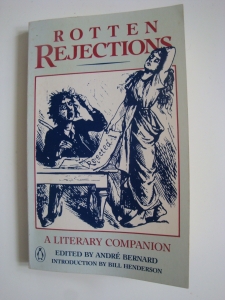In December, 2013, I was notified that my essay, What the Dog Understood, published in O-Dark-Thirty (the journal of the Veteran’s Writing Project) had been nominated for a Pushcart Prize. I had submitted this piece to more than twenty journals before it was accepted by the editors at O-Dark-Thirty. The lesson here is – perservere. Besides honing your writing skills, you must believe that there will be a home for your work and your light will shine – sometime, somewhere. Certainly it has to do with crafting your best work, but timing is another essential ingredient. This particular essay began more than ten years ago. When I felt it was ready, I sent it to journals whose contents seemed sympatico with my style of nonfiction writing. Rarely do editors tell you why a piece is rejected, but those who did write words of encouragement on the rejection letter alluded to something like, “not right for us at this time.”
If you’re like me, you might ask yourself: “What does that mean? Am I too early or too late?” The other thing I did was to pull out a tiny volume entitled, Rotten Rejections, edited by Andre Bernard with an introduction by Bill Henderson, the same Bill Henderson who created the Pushcart Prize in 1976. Reading a few lines from Rotten Rejections always makes me feel better. For example, in 1931 Pearl Buck received these words from a publisher about The Good Earth, “Regret that the American public is not interested in anything on China.”
Or – how about this note from a publisher after receiving the manuscript for Mastering the Art of French Cooking by Julia Child. “…It is a big, expensive cookbook of elaborate information and might well prove formidable to the American housewife. She might easily clip one of these recipes out of a magazine but be frightened by the book as a whole.”
Agatha Christie received this lukewarm response to A Mysterious Affair at Styles in 1920. “It is very interesting and has several good points, but it is not quite suitable for our list.”
Before Emily Dickinson completely gave up on being published in her lifetime, she received these comments from a publisher. “Queer – the rhymes were all wrong.” and “They are quite remarkable for defects as for beauties and are generally devoid of true poetical qualities.”
In 1895 H.G. Wells submitted The Time Machine to an editor and received this: “It is not interesting enough for the general reader and not thorough enough for the scientific reader.”
And, finally, Leaves of Grass by Walt Whitman was not an immediate hit. His rejection letter said, “We deem it injudicious to commit ourselves.”
Glancing through this little book is the best therapy for any rejected writer. Rejection brings us into the company of the greatest writers of all time – and success is just a question of time.

